Here’s What High and Low Carb Days Look Like During One Week of Carb Cycling

Carbohydrate cycling is a dietary protocol in which carbohydrate intake is manipulated on a daily or weekly basis to help overcome fat loss plateaus and promote weight loss. It’s important to note that this type of dietary protocol is typically done with the guidance of a dietician, as it requires specific alteration of carbohydrate intake and can be tough to stick to. However, a core concept of carbohydrate cycling is to minimize or eliminate processed carb consumption while incorporating more fiber-rich whole grains.
Therefore, while this type of diet isn’t necessarily suited for everyone, the core concept encourages us to be more mindful of the types of carbohydrates we are consuming and is beneficial for us long-term. An important part of quality nutrition is being able to differentiate carbs that provide the most nutritional benefit from those that are merely empty calories. By incorporating low-glycemic (slow-digesting), fiber-rich carbs while replacing refined carbs with quality sources of fat (avocados, nuts, seeds), we can improve blood sugar regulation and minimize cravings throughout the day.
Our Nutrition team at F45 has outlined what a typical high and low-carb day consists of in a one-week carb cycling meal plan, using some of our favorite Challenge recipes. These recipes incorporate some of the best carbs to add to your diet, including: sweet potatoes, black beans, lentils, steel-cut oats, and veggies like asparagus and zucchini. The sample below is based on a total daily caloric intake of 1500 calories. Note that macronutrient distribution will vary depending on your recommended total daily caloric intake relative to body weight, age, and gender.
Sunday and Monday: High-Carb Days
On high-carb days, approximately 45-50% of total daily caloric intake is from carbs, or about 175 to 180 grams of carbs per day.
Thursday to Saturday: Low-Carb Days
After following a moderate carbohydrate intake from Tuesday to Thursday, the final three days of the week are low-carb days. This means approximately 20-25% of total daily caloric intake, or about 115 to 130 grams of carbs per day.
Breakfast: Turmeric Almond Oatmeal
Approx. 41g carbs. Includes rolled oats, raspberries, raw almonds, buckinis, pumpkin seeds, turmeric powder, cinnamon, stevia.
Recipe
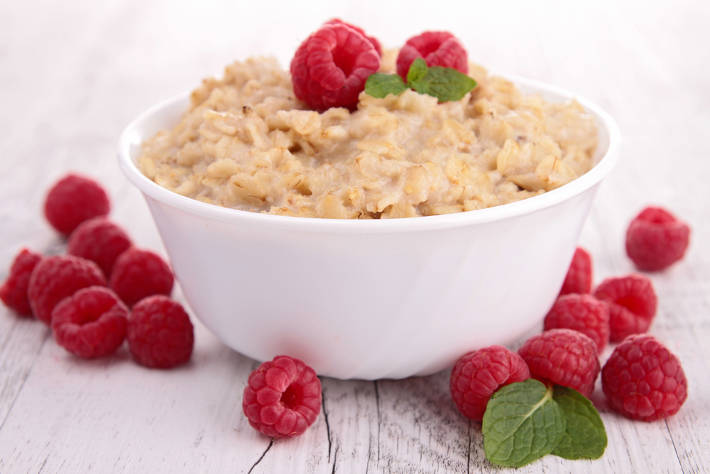
AM Snack: Berry Brekkie Oat Smoothie
Approx. 33g carbs
Recipe
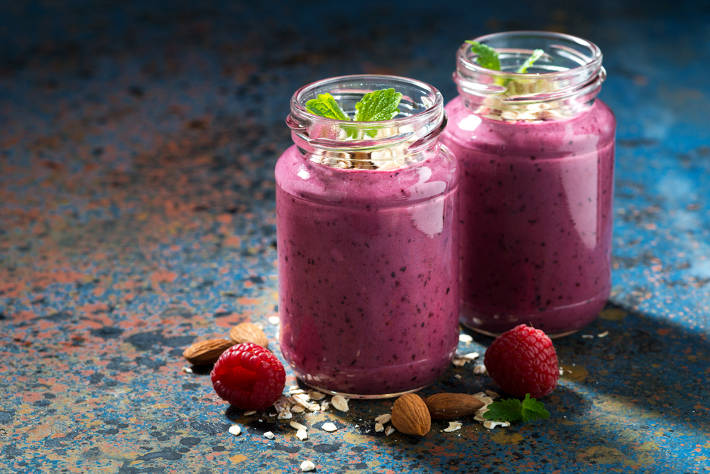
Lunch: Toasted 6-Layer Sandwich
Approx. 43g carbs. Includes whole-grain bread, tomatoes, red onion, spinach, dairy-free cheese, and avocado.
Recipe
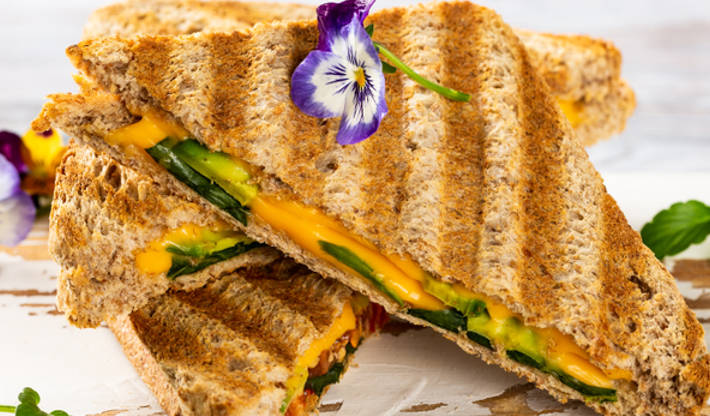
PM Snack: 2 Coconut Date Balls
Approx. 34g carbs
Recipe
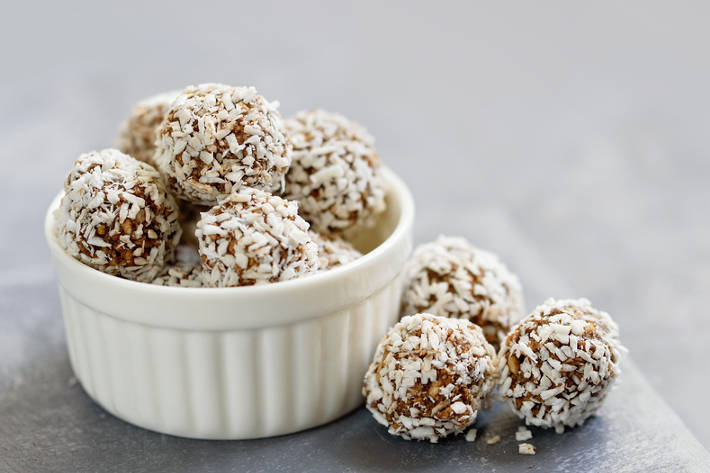
Dinner: Thai Satay Chicken, Vegetable and Brown Rice Bowl
Approx. 36g carbs. Includes chicken, sweet potato, red bell pepper, broccoli, and brown rice with a delicious homemade peanut sauce to top off.
Recipe
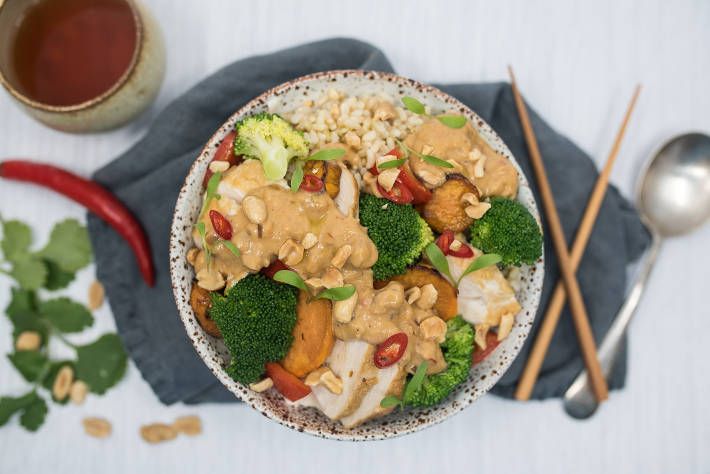
Breakfast: Crunchy Chia and Almond Yoghurt Bowl
Approx. 27g carbs. Includes Greek yogurt, frozen blueberries, maple syrup, chia seeds, almonds, and F45 Fuel
Recipe
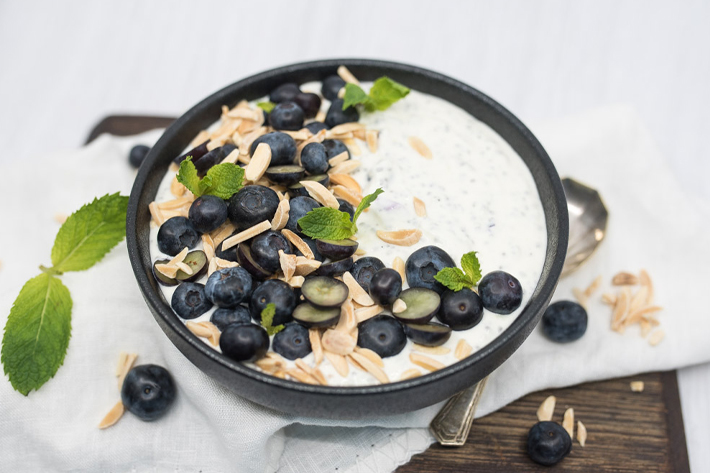
AM Snack: Banana Green Smoothie
Approx. 29g carbs
Recipe
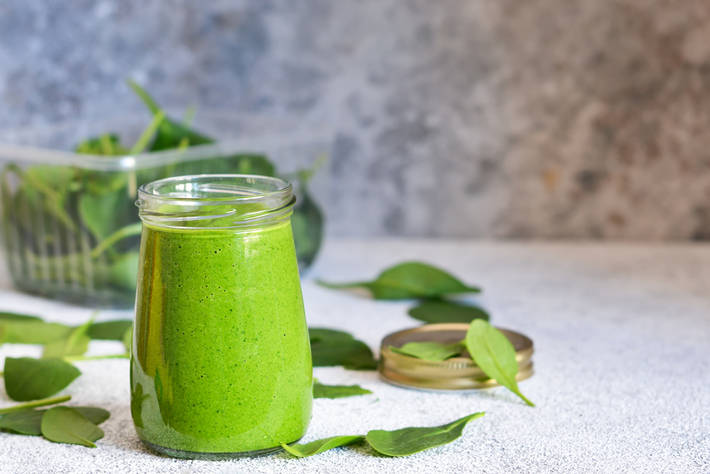
Lunch: Chilli Turkey Zoodles
Approx.18g carbs. Includes lean ground turkey, zucchini noodles, and lots of herbs and spices.
Recipe
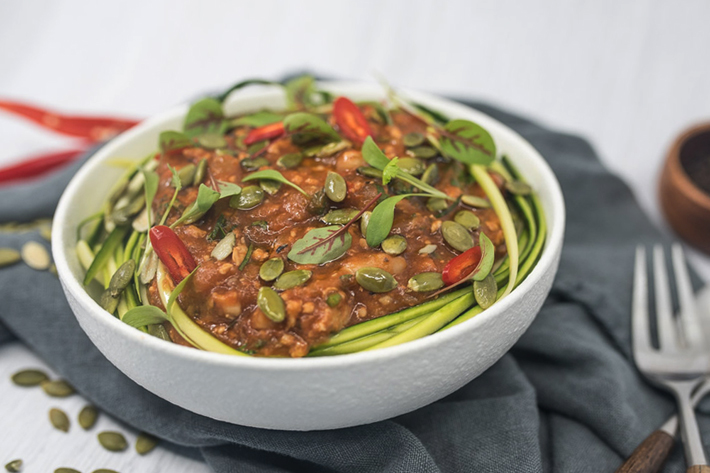
PM Snack: Low-Carb Blueberry Muffins
Approx. 7g carbs
Recipe
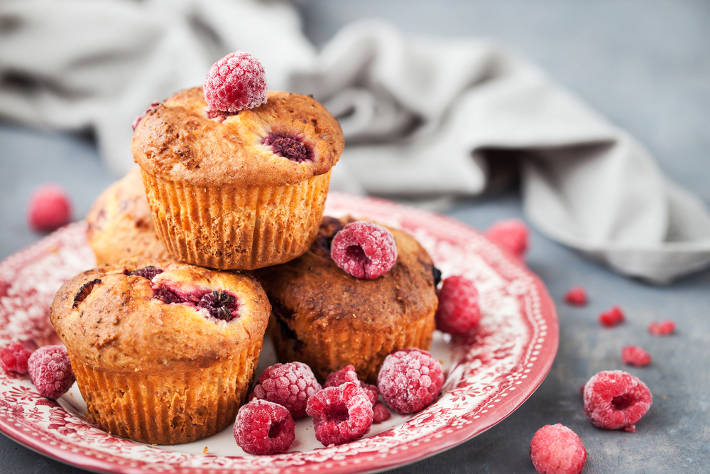
Dinner: Dill Roasted Salmon with Quinoa and Lentils
Approx. 22g carbs. Includes fresh wild-caught salmon, and a lentil-bean based salad.
Recipe
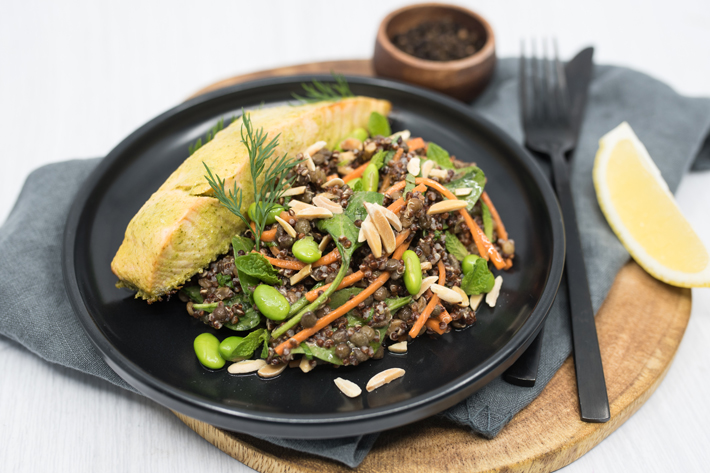
Note: This article is meant to be a guide and is not intended to replace medical advice or the advice of a physician. You should always consult a physician or registered dietician before starting a new dietary protocol.
References
Hearris, M. A., Hammond, K. M., Fell, J. M., & Morton, J. P. (2018). Regulation of muscle glycogen metabolism during exercise: implications for endurance performance and training adaptations. Nutrients, 10(3), 298.
Petrisko M, Kloss R, Bradley P, et al. Biochemical, Anthropometric, and Physiological Responses to Carbohydrate-Restricted Diets Versus a Low-Fat Diet in Obese Adults: A Randomized Crossover Trial. J Med Food. 2020;23(3):206-214. doi:10.1089/jmf.2019.0266
